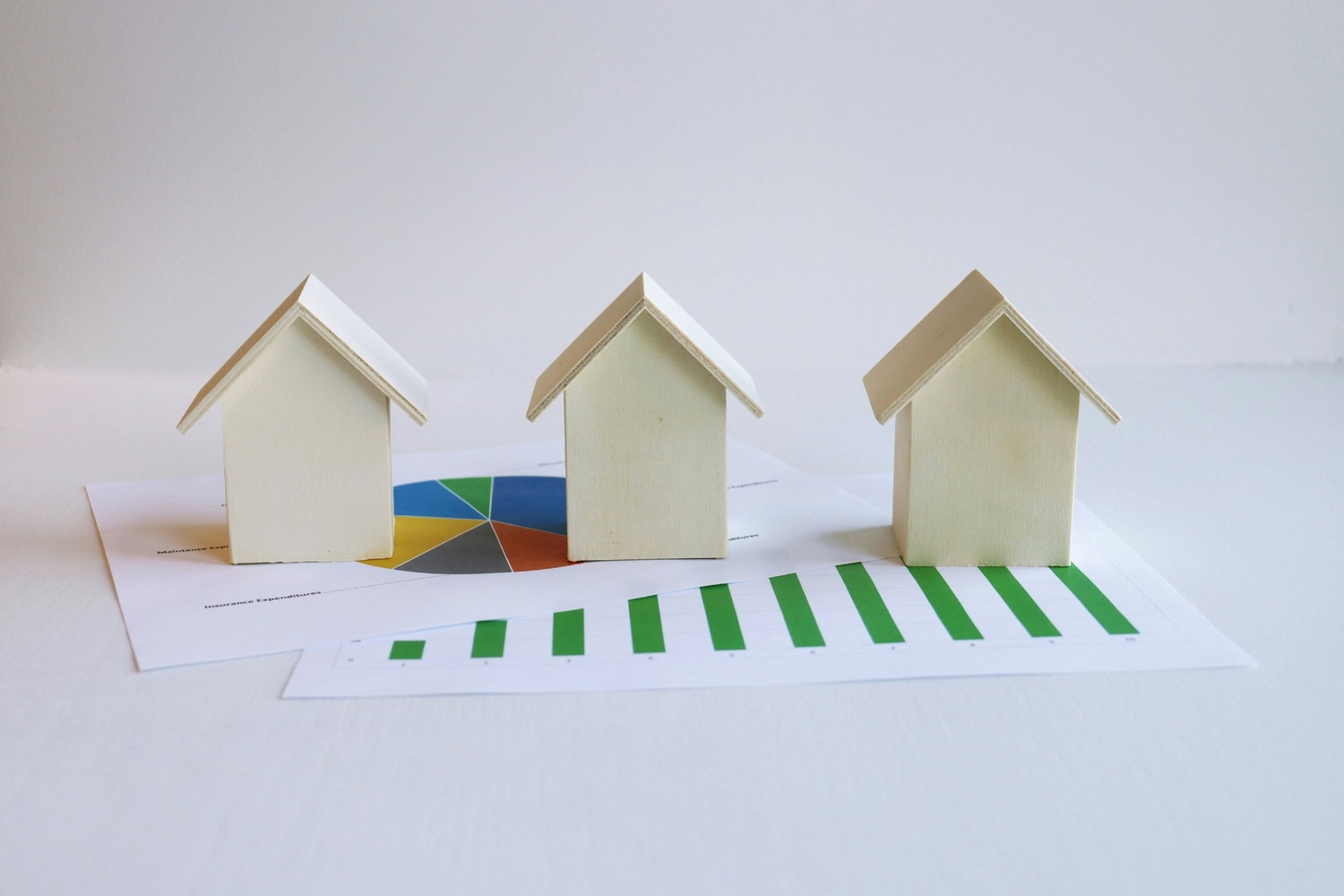Many people dream of owning property; these key steps will walk you through the nitty-gritty of owning one.

Buying land or a Home in Kenya involves essential steps that involve careful planning and attention.
The best way to buy property in Kenya is to take your time and not rush the process.
First-time Buyers are often surprised by how nerve-wracking the home ownership adventure can be and how detailed the home-buying and land process can be.
Owning property starts with a financial health assessment. Understanding your mortgage and financing options is crucial. Mortgage financing is a deal between the lender and the home purchaser. The lender loans the home purchaser money to purchase the house and agrees to pay it back over time.
Kenya's financial institutions have various mortgage lenders with very competitive interest rates. The various types of mortgages in Kenya include fixed-rate mortgages, adjustable-rate mortgages, hybrid mortgages, and interest-only mortgages.

The emerging online platforms have made navigating property listings in Kenya easier. Traditional scouting methods are long gone, and the online experience has evolved into a more accessible and convenient one.
Before you reach a sales agreement, consider knowing a seller's advocate, setting your priorities, utilizing search filters, and verifying listings and sellers. Always verify listings with a trusted agent; online scams have become common.
The right neighborhood to choose heavily relies on location, which is also influenced by your earlier priorities. Are you looking for family residential property in Kenya? Then, the Nairobi suburbs are the answer.

Finding houses in Kenya can be overwhelming. Information overload is a thing, especially today, when everyone has something to say, and you can easily access these opinions online.
A standard tip is to take your time. You don't have to buy your home immediately, so don't rush the process. Buying a house is unlike purchasing a household item.
Find professionals, such as a real estate agent, to help you understand the process and get the best houses. They will also guide you on legal requirements, like getting a property lawyer to help you obtain a sale agreement.

The step-by-step guide starts with an offer letter in which the buyer proposes a price for the house. The seller may accept the offer or present a counter offer. Once the two parties agree on a price, they formalize the sale.
If the buyer uses a mortgage lender to conduct the property transaction, the buyer's national ID and other identification documents are essential.
If the buyer is married, spousal consent may be required to reach the terms of sale. A title deed is a legally binding document issued to prove possession and legal rights over a piece of land.
According to the land registry, the title issued to the owner includes a Certificate of the lease, absolute, and sectional deed. Absolute/freehold means that the land owner has maximum rights to the land without any period or other restrictions.
The sectional deed is issued to prove ownership of a unit within a building, e.g., when you buy an apartment or flat. A Certificate Lease is a title where one is subjected to a definite amount of time/period.
It is essential to work with a property lawyer to verify the authenticity of any documents before obtaining a deal on a house or land in Kenya.

Buyers often realize the actual costs too late and get blindsided by the unexpected bills. There are hidden costs you should be prepared for if you plan to buy land or houses in Kenya.
Factoring this into your budget allows you to prevent surprises later in the buying process. Before committing to any deal, here is a breakdown of all closing costs.
If you are buying an old house, getting a professional to inspect it is crucial; this determines whether it is in an excellent state. Stamp duty fees are taxes applied to property documents.
The Kenya Revenue Authority regulates stamp duty rates. Application fees are charged when you take a mortgage to purchase a home, and legal fees are charged when you hire a professional lawyer to guide you through the legalities of buying land.

Buying off-plan means purchasing a property before it has been completed. It can still be under construction. The buyers rely on model showrooms' architectural plans and 3D renderings.
The purchase price is often lower compared to completed buildings. This primarily benefits those purchasing a freehold property since you can select the finishes and layouts.
Buyers may get discounted registration fees at the land registry and lower prices when purchasing off-plan.
In Kenya, the Law Society of Kenya has guidelines on off-plan purchases that can protect buyers from cases such as fraud and defaulting developers. An Escrow account gives you an extra layer of security in case the project stalls.
You need to ensure that your new house meets your expectations. It has to tick most, if not all, of the boxes on your list.
Discovering issues beforehand can give you better leverage to negotiate a lower price or request repair before closing the deal with the seller.
A thorough inspection of the house is needed, and this might require you to hire a paid professional who can do it better.
One should examine the interior, exterior, plumbing, electoral, and safety features. Spending a little extra upfront to uncover potential problems is better than facing expenses later.
Don't shy away from making a reasonable offer to the seller below the asking prices; negotiation is the key to getting the best deal.
Get to know why the seller is selling the property. Is the seller aware of the market trends? What is the seller's history? Is the seller willing to accept a flexible payment? Confirm that the seller agrees with all terms of the sale.
Ensure that any paid invoices are up to date and that there are no outstanding payments. Gathering insights into the seller's situation can compel a more strategic offer.

Ask for help, especially for a first-time home buyer. Trust me, you cannot do it all by yourself. It can be very time-consuming, and mistakes are costly. This will streamline the process and ensure everything is done correctly.
Working with a Real Estate company and professional lawyer will allow you to familiarize yourself quickly with home-buying and investing. You will also learn land terms like lease agreements and property acquisition.
Finding the best real estate agent is one step closer to finding your dream home. First, you have to research and find an agent that sells property similar to what you want yours to look like. This ensures that the real estate agent is experienced enough to guide you.
Second, you have to ask whether it's online reviews, friends, or family. This will guide you and help you learn about their reputation.
Another is to check their credentials and not be afraid to ask many questions. This will help you choose the best real estate agent to help you with the home-buying process for your house in Kenya.
The need for physical visits is long gone. Nowadays, everything that requires you to be there physically has an online alternative, so how do you go about the online property search?
Searching online can sometimes give you so much information that it can be incredibly confusing for a first-time buyer. Parameters help narrow down this information. For example, the price and the location, whether old or new, are what you'd register on your search.
If you want to know if the source of information is trustworthy, try looking at the dates and checking for the latest information. Also, check for a site with more comprehensive details, like the newest property's price, size, and pictures.

Kenya's real estate interest has been steady, especially in its capital cities, such as Nairobi, Mombasa, and Kisumu.
The rising population in urban areas has led to a demand for rental properties; hence, their value tends to appreciate over the years with significant returns.
The types of investment properties include residential, commercial, mixed-use developments, and short-term or vacation rentals.
When looking to invest, looking at the location is crucial; it needs to align with your priorities. However good this sounds, success depends on careful planning, research, and understanding market trends.
There are four main types of commercial real estate properties. They include offices, such as those in the CBD (Central Business District ), retail shopping centers or malls, and multifamily, which can be low-rise,mid-rise, or high-rise apartments. Each has its specific features.
To compare, you'll need to do a property marketing analysis and consider factors such as demand, supply, competition, and trends.
The final step is verifying the financial aspects, such as analyzing income, expenses, and debt services. There are also legalities, like a legal review of the contracts and physical inspection, such as the property's system, location, and structure.
To purchase a house in Kenya, you must make a home budget. The steps that will guide you in planning are as follows: First, you must know your net income. This lets you know your limits and how far along you are from the deposit.
You don't want to purchase a house that will leave you in debt. Next, you need to be able to track your spending. This lets you set realistic goals for getting your wholly-owned house in Kenya.
It's crucial to have a property valuer or a government valuer. They assess the asking price and confirm the property's market value.

Understanding property taxes is a crucial step when purchasing a house in Kenya. This helps you budget and calculate your total purchase cost.
In Kenya, major real estate tax types include capital gains tax, stamp duty tax, and rental income tax.CGT(capital gain tax) is charged upon the transfer of property.
The gain accrued is charged to either the company or the individual. The capital gains tax rate is 15% of the net gain from the property transferred.
The property buyer pays the stamp duty rates to ensure it is registered in Kenya; the rates paid are between 2% and 4% of the property value, depending on the cost of the properties.
Rental tax applies to any individual who receives payment from others. Consulting a property lawyer can help clarify your property's taxes and legal fees.

One mistake is rushing the process and skipping right into the purchase. Neglecting legal due diligence can get you in trouble with the government, and failing to verify your documents can lead to falling prey to online scams.
This also comes in when you fail to do detailed online research. There has been an upsurge of scammers online who are ready for you to make mistakes and avoid being among the numbers. Also, avoid dealing with brokers who do not possess the legal capacity.
Get a trusted real estate company that will seamlessly guide you through the process.
Buying property in Kenya, whether for a home or agricultural land, requires a thorough understanding of the entire process to avoid costly mistakes.
From determining the purchase price to closing the deal, it begins with conducting a title search and ends with acquiring a title deed—a document that grants absolute ownership for properties under leasehold interest.
Working with a mortgage lender and seller advocate is crucial. This helps verify transfer documents, meet land rates, and comply with the Advocates Remuneration Amendment order to ensure you pay the correct legal fees.
The land control board ensures the company registry verifies the company name. As your trusted real estate agent, I will guide you through every step. Let's make your property owning journey smooth and successful.
To prove ownership, you need the title deed, a recent land registry certificate, and proof of payment of property taxes and utility bills. Ensure all documents are current and verified.
Conduct a thorough inspection of the house to identify any necessary repairs or maintenance. Consider hiring a professional inspector for an unbiased evaluation.
Confirm that the seller accepts all the final terms, including the agreed-upon purchase price and ownership transfer. Ensure that they are entirely signed and completed.
Verify that all paid invoices related to the property, including taxes, maintenance fees, and utility bills, are current and documented. This helps avoid any disputes and shows that the property is well-maintained.